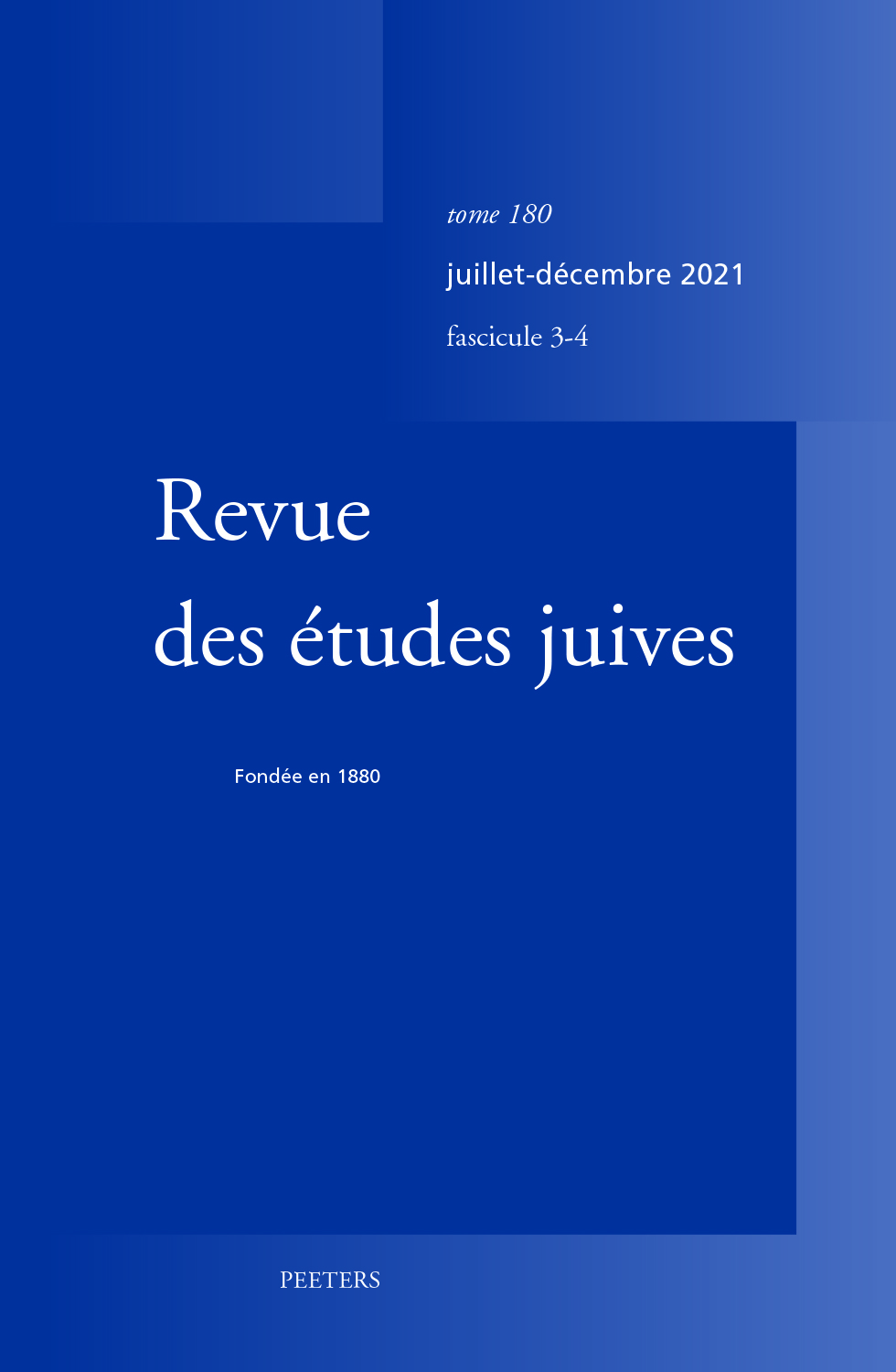 previous article in this issue previous article in this issue | next article in this issue  |

Preview first page |
Document Details : Title: Allegorical Interpretation and its Limits in Joseph ibn Kaspi's Thought Author(s): HALIVA, Racheli Journal: Revue des Études Juives Volume: 183 Issue: 1-2 Date: janvier-juin 2024 Pages: 107-124 DOI: 10.2143/REJ.183.1.3293241 Abstract : Joseph ibn Kaspi is both a biblical commentator – and, as he himself attests, a commentator on the pešaṭ meaning of scriptures – and a very loyal Maimonidean. The combination of these two characteristics at times puts him in an uncomfortable position. On the one hand, he wishes to preserve the literal sense of the biblical verses while avoiding giving a philosophical interpretation, for in his view, scriptures were given to the 'simple' people and therefore should be understood by the uneducated. On the other, as a faithful student of Maimonides, he needs to justify why he deviates from Maimonides’s principle according to which one should reinterpret the biblical text so that it coheres with the philosophical enquiry in the event of a contradiction between the two. In this article, I examine how Kaspi approaches an allegorical interpretation in several of his writings. I argue that despite his clear declaration that 'one should always remain close to the pešaṭ meaning of the biblical verse', he diverts from the rule that he himself set for his readers in at least one case. I will further argue that the 'young' Kaspi was a very enthusiastic biblical commentator and that he was therefore very adamant about preserving the pešaṭ meaning, while in his later days, he had to take into consideration problematic biblical texts that may have posed severe theological difficulties. Joseph ibn Kaspi est à la fois un commentateur biblique – comme il le souligne lui-même, particulièrement intéressé par le pešaṭ du texte biblique – et un épigone de Maïmonide. La combinaison de ces deux caractéristiques place parfois Kaspi dans une position inconfortable. D’une part, il souhaite préserver le sens littéral des versets bibliques en s’abstenant d’en donner une interprétation philosophique, car les Écritures ayant été données aux gens «simples» doivent pouvoir être comprises par tous. D’autre part, en tant que fidèle disciple de Maïmonide, il se doit de justifier pourquoi il s’écarte du principe de son maître, selon lequel il faut réinterpréter le texte biblique pour qu’il s’accorde avec la science philosophique, s’il y a une contradiction apparente entre les deux. Dans cet article, j’analyse la manière dont Kaspi aborde l’interprétation allégorique dans plusieurs de ses écrits. Je soutiens que malgré une déclaration claire de Kaspi selon laquelle «il faut toujours rester proche du pešaṭ du verset biblique», dans au moins un cas, il s’écarte de la règle qu’il a luimême fixée pour ses lecteurs. Je soutiens en outre que le «jeune» Kaspi était un commentateur biblique très fougueux qui tenait absolument à maintenir le pešaṭ, alors que plus tard, il a dû prendre en considération des textes bibliques problématiques qui auraient pu poser de graves difficultés théologiques. |
|


